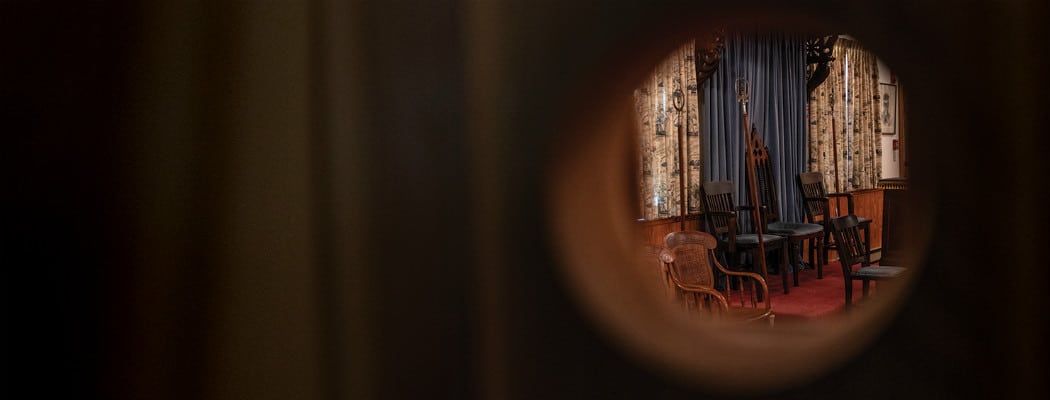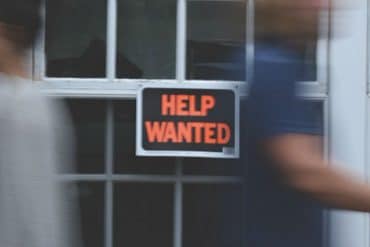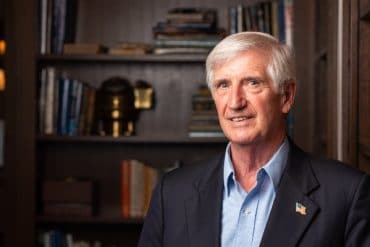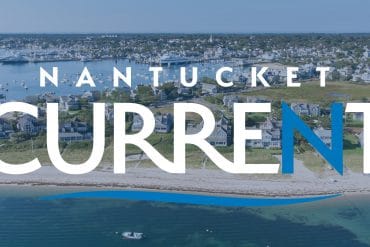Step inside some of the most exclusive clubs on the island.
On an island where yacht clubs and golf clubs can fetch six figure initiation fees, there are a handful of organizations where no amount of money can buy a membership. Secret societies like the Union Lodge of Free & Accepted Masons, the Maddequet Admiralty Association and the Independent Order of Odd Fellows fly far below the radar. Historically, these highly private organizations were a means for like-minded men to gather and socialize. But that’s now changing, as these enclaves are becoming more inclusive, with members speaking passionately about awarding scholarships and other kinds of financial aid to diverse recipients on the island. Despite the contributions of these organizations to the community, very few from outside their ranks have been allowed entry into their halls. Until now. With a little bit of digging and a promise not to spill any secrets, N Magazine gained access to some of the island’s most tight-lipped clubs.
THE MADDEQUET ADMIRALTY
 On a bright, sunny day in late May, Carl Sjolund was out in his twenty-three-foot scalloping boat, digging littlenecks in Madaket harbor. He was throwing an Admiralty dinner, and he planned to serve stuffed clams and Alaskan cod caught by his son Jim, a mate on a longliner in the Bering Sea. “It’s the only building in Madaket with a cannon in the front yard,” Sjolund says of the clubhouse on Tennessee Avenue that is almost within casting distance of Hither Creek. The World War I-era cannon is fired to mark events such as the dinners Sjolund and others host for 130 or so men and family members. Of those, a few dozen, like Sjolund, are life members who have attended meetings, fishing tournaments and social events with the Admiralty for more than twenty years.
On a bright, sunny day in late May, Carl Sjolund was out in his twenty-three-foot scalloping boat, digging littlenecks in Madaket harbor. He was throwing an Admiralty dinner, and he planned to serve stuffed clams and Alaskan cod caught by his son Jim, a mate on a longliner in the Bering Sea. “It’s the only building in Madaket with a cannon in the front yard,” Sjolund says of the clubhouse on Tennessee Avenue that is almost within casting distance of Hither Creek. The World War I-era cannon is fired to mark events such as the dinners Sjolund and others host for 130 or so men and family members. Of those, a few dozen, like Sjolund, are life members who have attended meetings, fishing tournaments and social events with the Admiralty for more than twenty years.
 “This is the last stronghold on Nantucket,” says Commodore Woody Lindley, who stands behind a bar with a working compass embedded in its lacquered top. “Most of the people here have been on Nantucket a long time.” In the 1930s, the founders of the Admiralty Club’s goal was to promote the social well-being of the handful of families inhabiting Madaket, Lindley says. That meant ensuring that roads and electricity extended to the far end of the island. Today, the Admiralty raises tens of thousands of dollars for scholarships for Nantucket high school students.
“This is the last stronghold on Nantucket,” says Commodore Woody Lindley, who stands behind a bar with a working compass embedded in its lacquered top. “Most of the people here have been on Nantucket a long time.” In the 1930s, the founders of the Admiralty Club’s goal was to promote the social well-being of the handful of families inhabiting Madaket, Lindley says. That meant ensuring that roads and electricity extended to the far end of the island. Today, the Admiralty raises tens of thousands of dollars for scholarships for Nantucket high school students.
Lindley calls the club low-key and family-oriented. Prospective members are sponsored by an existing member and attend up to a year’s worth of meetings before they’re “spoken on and voted on,” Lindley says. But he acknowledges that the membership is aging—“We keep a defibrillator in the kitchen,” he quips— and he sees fewer young families at fishing tournaments.
 Lloyd Arnold, another lifetime member, describes the rough wooden clubhouse his grandfather helped build as a glorified fishing stage, the hastily thrown-together waterside shacks for salting and drying cod. The wood-beamed Admiralty clubhouse, with its winches, lines and enormous ship’s wheel chandelier, feels like it’s about to set sail in one of the regattas the club used to host. Today, it’s one of the last bastions of old Nantucket, kept alive by a group of hardy islanders who have no problem keeping secrets.
Lloyd Arnold, another lifetime member, describes the rough wooden clubhouse his grandfather helped build as a glorified fishing stage, the hastily thrown-together waterside shacks for salting and drying cod. The wood-beamed Admiralty clubhouse, with its winches, lines and enormous ship’s wheel chandelier, feels like it’s about to set sail in one of the regattas the club used to host. Today, it’s one of the last bastions of old Nantucket, kept alive by a group of hardy islanders who have no problem keeping secrets.
THE FREEMASONS
 Someone once wrote that the Freemasons are not a secret society, but a society with secrets. “I don’t know what I can tell you and what I can’t,” says Mark Norris. He’s been on Nantucket for twenty-five years and over the past eight has worked his way to the top of the Union Lodge of Free & Accepted Masons’ hierarchy to earn the title of Worshipful Master. “So I’m not going to divulge too much—just in case.” At a safe distance, Norris flips through the pages of a small spiral-bound notebook with a blue cover: the repository of rituals. “It’s all written in code,” he warns. “If you picked it up, it’ll just look like gibberish.”
Someone once wrote that the Freemasons are not a secret society, but a society with secrets. “I don’t know what I can tell you and what I can’t,” says Mark Norris. He’s been on Nantucket for twenty-five years and over the past eight has worked his way to the top of the Union Lodge of Free & Accepted Masons’ hierarchy to earn the title of Worshipful Master. “So I’m not going to divulge too much—just in case.” At a safe distance, Norris flips through the pages of a small spiral-bound notebook with a blue cover: the repository of rituals. “It’s all written in code,” he warns. “If you picked it up, it’ll just look like gibberish.”
 While historians do not know exactly when the Freemasons were formed, their best guess is the organization dates back to stone masons in the Middle Ages. The group spread to the American colonies, earning such historic members as George Washington, Paul Revere and Benjamin Franklin. Union Lodge F&AM dates to 1771, when local seamen petitioned grandmasters in Boston for their own lodge. Past masters include Swains, Starbucks, Husseys, Folgers, Coffins. Besides paying “one shilling lawful money” each quarter to aid “mariner(s) from distant shores … the pitiless ocean cast helpless upon the island,” members were at times asked to procure “a quarter cask of good Tenerife wine” to accompany monthly feasts.
While historians do not know exactly when the Freemasons were formed, their best guess is the organization dates back to stone masons in the Middle Ages. The group spread to the American colonies, earning such historic members as George Washington, Paul Revere and Benjamin Franklin. Union Lodge F&AM dates to 1771, when local seamen petitioned grandmasters in Boston for their own lodge. Past masters include Swains, Starbucks, Husseys, Folgers, Coffins. Besides paying “one shilling lawful money” each quarter to aid “mariner(s) from distant shores … the pitiless ocean cast helpless upon the island,” members were at times asked to procure “a quarter cask of good Tenerife wine” to accompany monthly feasts.
 These days, the Nantucket Masons are guys like Norris, tapped to apply to the lodge by a longtime Masonic master at the First Congregational Church. The Old Testament plays a big part in the fraternity’s lore. A Bible on a stand occupies the center of the ornate, plush-carpeted meeting space above the Lion’s Paw on Main Street. Brethren address one another as “most worshipful.” “You have to believe in God, but it can be your god. It doesn’t have to be Jesus Christ. You can be Jewish,” Norris says. Would-be Masons have to have “good moral standing” and no criminal record. “You don’t have to be employed. You don’t have to be married. You don’t have to be gay or straight or single. That’s open.” Brothers vote on prospective members by drop- ping a white cube or a black ball into a wooden box. A single black ball and you’re out. “If you’re a brother and you fall into hard times, it’s our duty to take care of our own,” Norris says. “That’s why we want to be careful who you bring in because we’re basically taking care of them for life.”
These days, the Nantucket Masons are guys like Norris, tapped to apply to the lodge by a longtime Masonic master at the First Congregational Church. The Old Testament plays a big part in the fraternity’s lore. A Bible on a stand occupies the center of the ornate, plush-carpeted meeting space above the Lion’s Paw on Main Street. Brethren address one another as “most worshipful.” “You have to believe in God, but it can be your god. It doesn’t have to be Jesus Christ. You can be Jewish,” Norris says. Would-be Masons have to have “good moral standing” and no criminal record. “You don’t have to be employed. You don’t have to be married. You don’t have to be gay or straight or single. That’s open.” Brothers vote on prospective members by drop- ping a white cube or a black ball into a wooden box. A single black ball and you’re out. “If you’re a brother and you fall into hard times, it’s our duty to take care of our own,” Norris says. “That’s why we want to be careful who you bring in because we’re basically taking care of them for life.”
 Norris enjoys sharing a history with the bearded men whose faded images are framed in gold in the hall’s antechamber. “We strive to do good,” he says. “We give away a ton of money every year, and we’re not looking for accolades. We’re a brotherhood of men who want to be around other men who are doing good.”
Norris enjoys sharing a history with the bearded men whose faded images are framed in gold in the hall’s antechamber. “We strive to do good,” he says. “We give away a ton of money every year, and we’re not looking for accolades. We’re a brotherhood of men who want to be around other men who are doing good.”
THE ODD FELLOWS
 Neville Richen walks a visitor through a raftered Bartlett Road clubhouse that he says reminds him of an upside-down ship. Outside, a flag—with three chain links representing friendship, love and truth—flutters in the breeze. Like the Masons, the Independent Order of Odd Fellows is a worldwide fraternal organization with Bible-inspired rituals, symbols and lofty-sounding goals such as “elevating the character of mankind.” They, too, boast a storied past on Nantucket with whaling-captain members dating back to 1845. Their “oddness,” says unofficial Odd Fellows historian and local entrepreneur Sean Dew, stemmed from a willingness to help strangers.
Neville Richen walks a visitor through a raftered Bartlett Road clubhouse that he says reminds him of an upside-down ship. Outside, a flag—with three chain links representing friendship, love and truth—flutters in the breeze. Like the Masons, the Independent Order of Odd Fellows is a worldwide fraternal organization with Bible-inspired rituals, symbols and lofty-sounding goals such as “elevating the character of mankind.” They, too, boast a storied past on Nantucket with whaling-captain members dating back to 1845. Their “oddness,” says unofficial Odd Fellows historian and local entrepreneur Sean Dew, stemmed from a willingness to help strangers.
 The first lodge of the Odd Fellows was formed in the United States the day after Christmas in 1806. The founding members were three boat builders, a singer and a comedian—a group well in keeping with the name Odd Fellows. Meetings were held in taverns where members enjoyed “mirth and merrymaking.” New lodges sprouted up slowly leading up to the Civil War, including the one on Nantucket. After the war, the Odd Fellows’ popularity exploded and, since that time, the organization has amassed hundreds of thousands of members around the world. One of those members is Neville Richen.
The first lodge of the Odd Fellows was formed in the United States the day after Christmas in 1806. The founding members were three boat builders, a singer and a comedian—a group well in keeping with the name Odd Fellows. Meetings were held in taverns where members enjoyed “mirth and merrymaking.” New lodges sprouted up slowly leading up to the Civil War, including the one on Nantucket. After the war, the Odd Fellows’ popularity exploded and, since that time, the organization has amassed hundreds of thousands of members around the world. One of those members is Neville Richen.
 A New York-born actor, Richen came to Nantucket in the 1970s to work with the now-defunct Actors Theatre. He joined the Odd Fellows in 1994 and has served as Grand Master of the local chapter. If no one else steps up, he might serve a second term. Richen, who is seventy-five, says, “There’s some old timers like me and then there’s a whole bunch of young guys.” Like Norris, Richen is wary of giving too much information away. He refers to members by initials to protect those who want to keep their affiliation hush-hush. After all, what’s an inner sanctum, if you can’t keep its secrets?
A New York-born actor, Richen came to Nantucket in the 1970s to work with the now-defunct Actors Theatre. He joined the Odd Fellows in 1994 and has served as Grand Master of the local chapter. If no one else steps up, he might serve a second term. Richen, who is seventy-five, says, “There’s some old timers like me and then there’s a whole bunch of young guys.” Like Norris, Richen is wary of giving too much information away. He refers to members by initials to protect those who want to keep their affiliation hush-hush. After all, what’s an inner sanctum, if you can’t keep its secrets?





